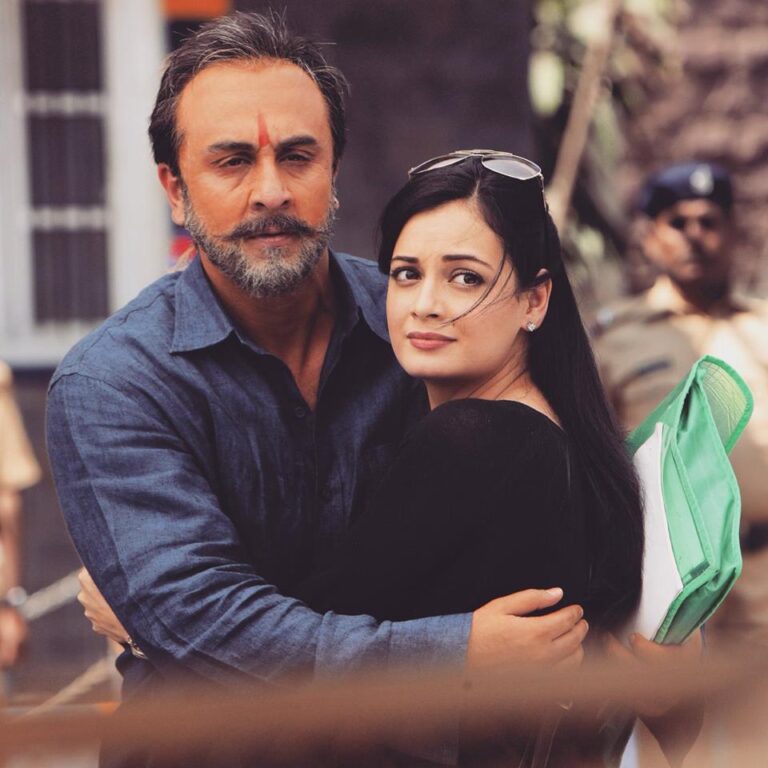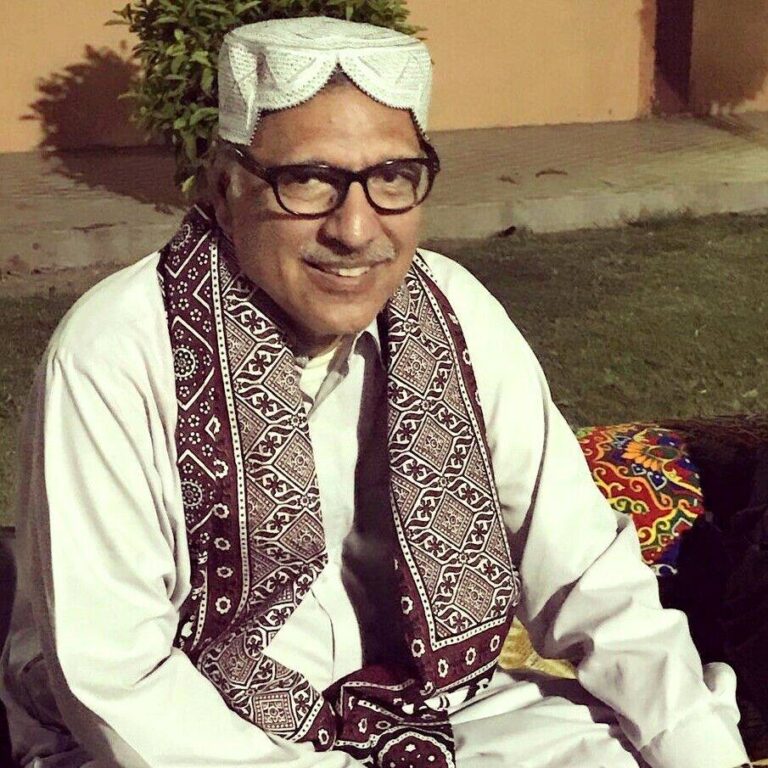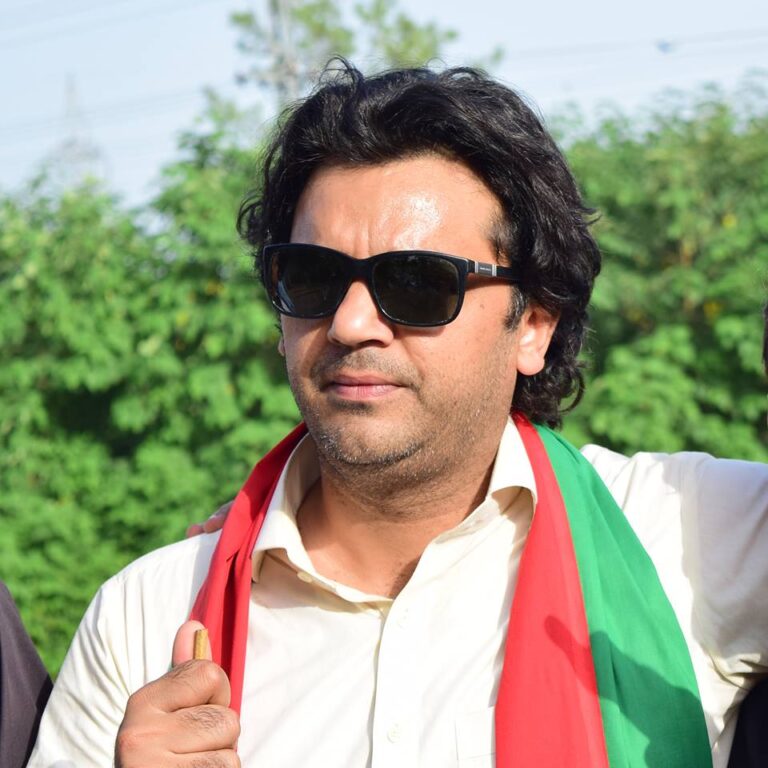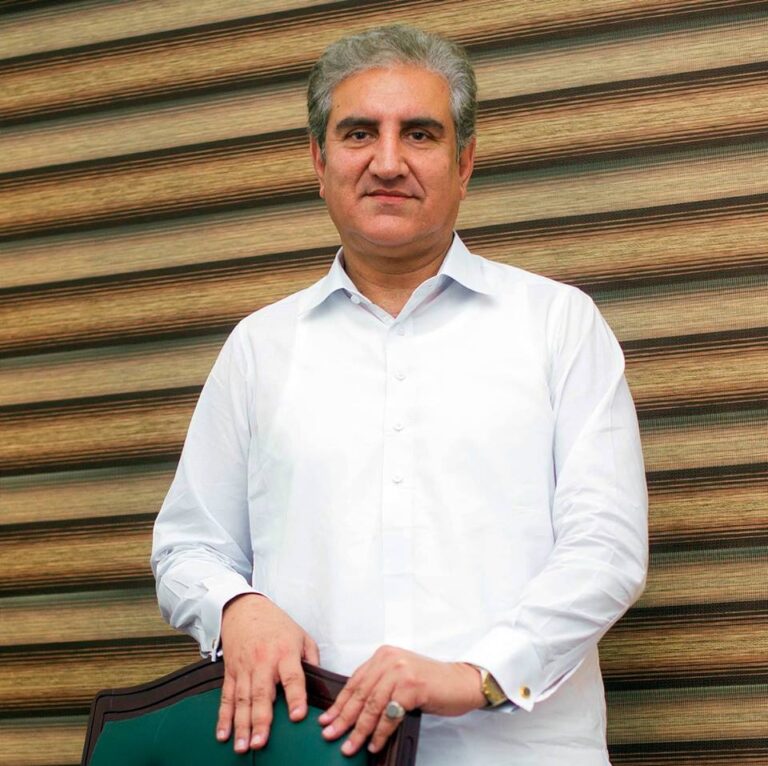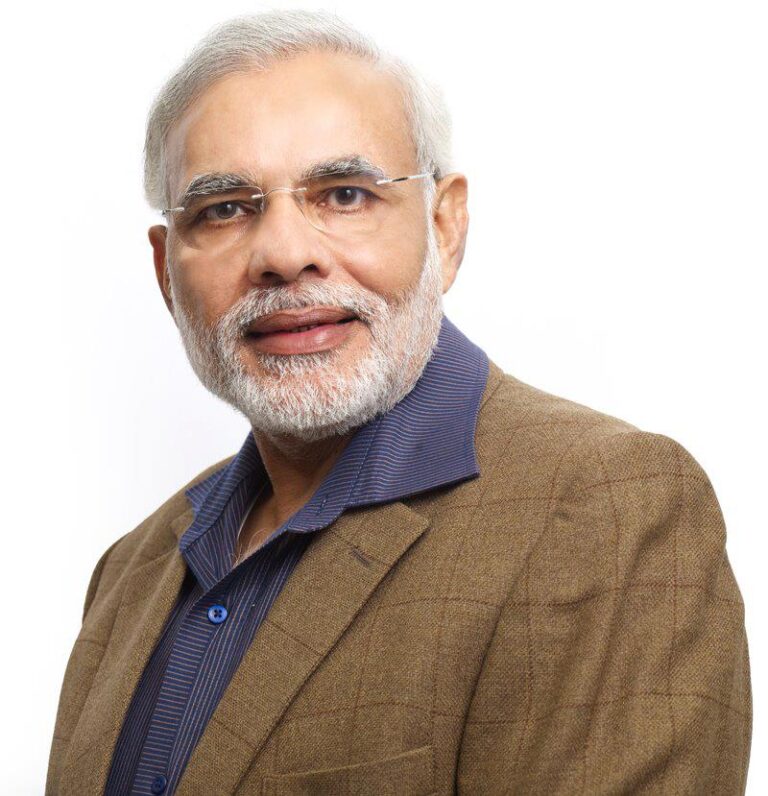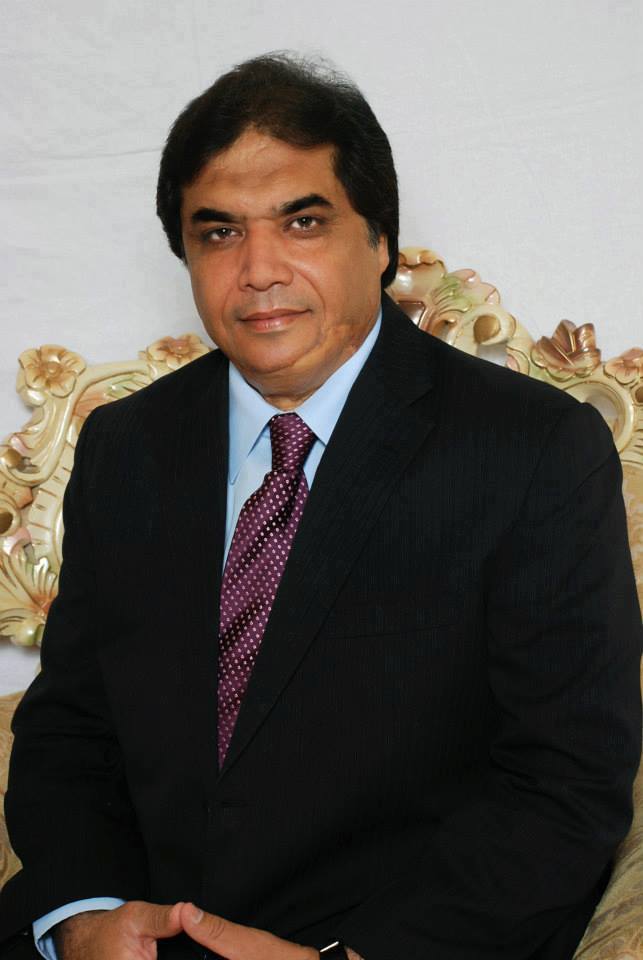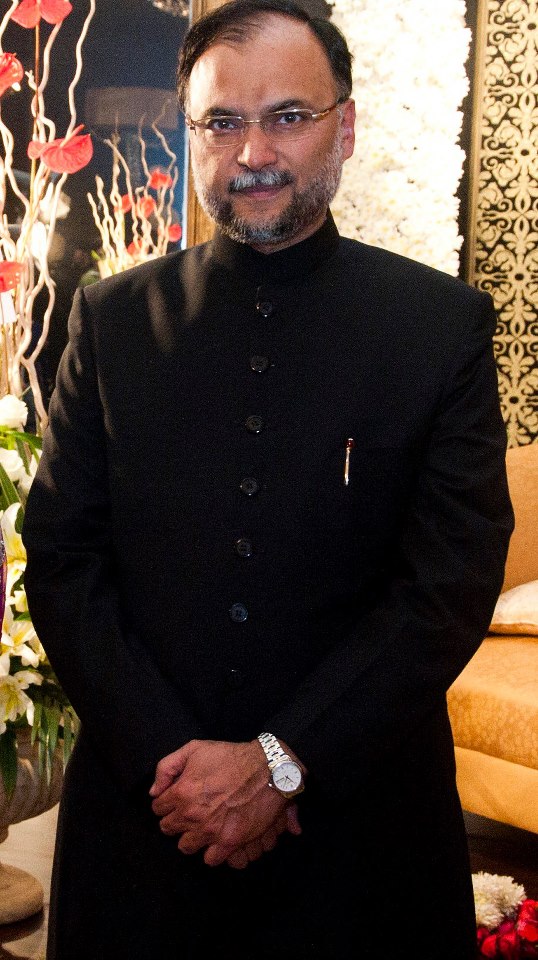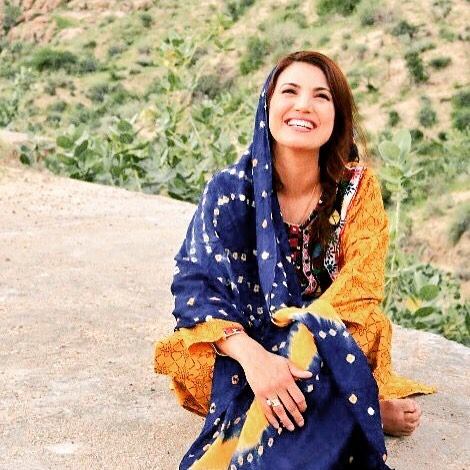Reham Khan Book Chapter 1
The summer of 1985 was memorable. The twelve-year-old was finally allowed to move into a room of her own. Not only had this long-awaited independence been granted, but my passion for performance was finally being channelled, as I had managed to bag a children’s show. Almost a year earlier, a female producer at the only television network, PTV, had spotted me in a stage play produced by my mother for a women’s charity in the Peshawar Club for the army. So impressed was Bushra Rafiq by my performance that she tracked me down and asked me in for an audition for a new puppet show she was launching on the state TV station. She had previously worked with the comedian, puppeteer and genius Farooq Qaiser. They needed a presenter for a children’s program. Bushra had seen me play the lead role in full makeup and ball gown. When I turned up in a frock and a ponytail, she was taken aback. They had been looking for a young lady, not a child. I wasn’t even a very girly kind of girl. With an adoring older brother that I idolised, I was more likely to be seen with war paint on my face pretending to be Native American, fighting imaginary battles in the Wild West, rather than playing with dolls or experimenting with makeup. Nevertheless, she gave me a passage from a children’s storybook to read out and I read it my way. People say that when I tell a story, I do it not only with the voices of the characters, but with full expression and complete immersion. Bushra was very creative when it came to using talent, and she fought the TV bosses for me to get the presenter position. When I turned up on the set, I was given a dupatta to wear on top of the dress I wore, and was then caked in makeup. I was twelve but looked a lot older. In fact, I didn’t look too different at twelve from how I would look at 44, but of course I lost the softness that the adipose layer gave me. I was a nightmare for the makeup artists as I hated makeup (especially eye makeup). I was an even bigger challenge for the PTV Urdu scriptwriters: I couldn’t read Urdu very well and the big words just sounded wrong, so I improvised. It wasn’t the prescribed Urdu for television. It was contemporary and anglicised, but the audience loved it. The catchphrase that became popular at the time was the result of me simply being my chirpy self on set. On the first day, the chief puppeteer (to keep me alert) sang out my nickname. “Ms Reeeeeeeeeeeeema!” I smiled and immediately sang back ‘Jeeeeeeee haan’. It was only a playfully affirmative response; a simple elongated and melodious “Yes!” But it quickly became popular with audiences and developed into something of catchphrase. The long words and long recordings were not easy for a fidgety child, but the seniors kept me engaged with off-air gaffes and a constant stream of biscuits, a tradition which continues to this day. If you want Ms. Khan to stay chirpy, keep the biscuits coming! I had positive and protective encounters with the adults I worked with on PTV. I discovered that one of the producers, the late Farukh Bashir Sahab, was so fatherly that he kept all the fan mail away from me since most of it was from boys. My mother would keep a hawk-like eye on the proceedings from the far end of the studio. She spent her entire summer chaperoning me, which I never realized or gave her credit for until much later. However, despite being a diligent and hyper-aware parent, she did not know that the risks to our children are far greater than we can comprehend. She perhaps felt that @furqan_pk
media was full of predators, so she was vigilant in TV studios. But in actual fact, abusers come in all sorts of guises. Children in Pakistan are often sexually abused by home help, and it is still overlooked by lazy or status-conscious parents. Having a maid or a helper for your child is a symbol of prestige. Some slightly more concerned parents may employ older children to look after their young ones, and with no idea of the huge risk of not only accidents, but also of sexual exposure by those youngsters. The concept of paedophilia was alien to us while we were growing up. Often, our parents, in an effort to not pollute our minds, leave us unprotected to the dangers that we are exposed to as children. My mother had always encouraged my performing abilities and, since I was a keen singer, she sent me for musical training at the established Abbasin Arts Council in Peshawar. It was a group activity with other children and several musicians in a hall. From all angles, it could be regarded as a safe activity. The unsuspecting, carefree nine-year-old, who was a confident performer and the daughter of the President of the Children’s Academy, was given preferential treatment by the boss. Everyone respected him. After all, he was an educated professional. I had been brought up with strict expectations of politeness and manners towards adults. To this day, that politeness is a burden, as I find it hard to get rid of people who may be boring me to death. I find it difficult to cut meetings short. But our children must be taught to NOT be polite if they feel uncomfortable. There was something about this ‘Uncle’ which made me uneasy, but I could not fully comprehend what it was. After successfully evading offers of biscuits in his office, I was to discover why I did not like him on what is known as Iqbal Day. That day, our group was performing to a hall full of literary intellectuals at the Pearl Continental Hotel in Peshawar. The ‘Uncle’ came to get me from the ground floor, where we were all getting ready for the performance, and told me he was taking me upstairs to the hall as it was running late. He had brought me a bar of chocolate. I took the chocolate from the balding and ageing bureaucrat and walked with him to the lift. It was too short a walk to the lift for the nineyear-old to plan an escape. As we stepped into the lift, my sense of unease increased. As the doors closed, he asked, “Why do you think I like you so much?” “Perhaps because you have no children of your own?” I responded. “Why, you clever little girl” he said The next 30 seconds would haunt me for years. He bent down, and I felt his mouth on my lips. The thought of it makes my skin crawl to this day. It was such an awful feeling that I have to physically shake the image from my head even as I recall it. The image of that creepy man, with his afro-style frizzy hair at the back of his balding head, is etched into my memory. We need to tell parents and children that paedophiles come in suits too. Fortunately for me, the lift opened on the first floor. It was a brief moment of violation that tortured me for years. I went on to perform in the tableau with not a step out of place, but I gave up my singing lessons forever. I did not know what had happened. I had no name for it, but I knew that it was very wrong and that I had to protect myself from it, and from him. I could not talk to any adult about it. The shame of what had happened was too much to confess. I was lucky that I could choose where I wanted to go and put my foot down, but many children may not have that liberty. They may not be able to avoid their maths or religious studies lessons because of strict parents. Do they have anyone they can talk to? As an adult, I would actively campaign for this, in any way I could. This deep desire to protect children was rooted in another change. In the summer of 1985, I discovered another trait of mine: how much I loved babies. My first baby was my first nephew, Abubakr Khan, who arrived in August. With @furqan_pk
him arrived my chance to be a parent, and it would seem parenting came naturally to me. We were waiting at home when we got the news. As we reached the hospital, I saw my brother-in-law, Khalid bhai, sitting on the stairs of the hospital. It seemed as if the tall man had shrunk. I put a reassuring hand on his shoulder and felt him shivering. I went upstairs and the doctor pointed out Abubakr to me. He was the baby with the oblong head, thumb sucking noisily. I immediately bonded to him. Nothing was difficult or scary for me. I took care of everything from clipping nails to giving him medicine. Abubakr and I became inseparable over the years; he was the younger sibling I had so desperately wanted. It not only prepared me for single-parenting, but reinforced my identity as a mother early on in life. I would be blessed with seven nephews, all of whom I am extremely close to. Along with my three children, they make my core circle of friends to this day. We tend to hang out together, and I end up assuming the role of agony aunt, quite literally. People have often described me as ambitious, but my teachers always described me as uncompetitive. My goal in life was never to defeat others. I never cared who came first. What mattered more to me was achieving what I had set for myself, and moving forward as a person. I didn’t have my eye on marks; I cared more about reading the book from the beginning to the end. Knowing everything was my motivation. Unlike the other girls, I never memorised past papers and the pre-prepared answers within them. Instead, I understood what I was studying. I wanted to learn. Running after material success leaves people empty and unhappy. The diamond ring you must have for your hand will only put distance between you and your friends and will never give you a nice warm hug. Unlike sportsmen, winning medals and positions was immaterial to me. I wanted to win genuine respect and love, hoping to have just a few people around me who I could laugh with over cups of coffee and cake. Be wary of sycophants: they are boring and will never give good advice. Power-hungry, egotistical people are only ever surrounded by even greedier subordinates, who will all jump ship the minute the one they are on shows signs of sinking. We, as parents and society, put too much emphasis on achievement. We teach our kids that the love they receive is conditional: ‘Bring me a trophy and I will love you more’. My mother could be described as one of those parents, who wanted us to bring back medals. But it was my father’s quiet influence, expecting nothing more of us than to be good and happy, that crushed her long list of material expectations. After my three-month stint on TV, I was nominated for ‘Best Child Star’ in the 6th PTV Awards. The award went to a three-year-old drama artist. She was the daughter of the famous TV star Laila Zuberi. Since I was not from a media family, it was great fun to rub shoulders with the TV stars we had watched from afar. While I looked around wide-eyed at the glamorous celebrities, my mother was focused on winning. I never understood her anger and disappointment at the result. I was secretly hoping to win of course, but not winning didn’t affect me much. In fact, I learnt an important life lesson: that at times we really will want certain things or outcomes to go our way. But if and when they don’t, and time passes, we will almost always look back on them and smile at just how worked up we’d got ourselves. Because nothing really matters. One day, you might be desperately waiting for someone’s phone call or text. But with the passing of just a few months, you will realise that you managed to not only live without it, but also that whatever it was you were so hell-bent on getting (be it a person, job or anything else) probably just doesn’t appeal to you anymore. It is absolutely true that life has better things planned for you than anything you can imagine. The only condition is that you persevere, preferably with a smile. Keep moving on from every disappointment with renewed hope, because things will get better. They always do. My brief stint on TV as a child star meant that I had more friends almost overnight. The preceding @furqan_pk
years had been dominated by bullying from classmates and patronising comments from teachers. On one occasion, in year 5, I was embarrassed in class by Nadia for using the word ‘object’. She insisted that the word did not exist in English. Everyone laughed at me. I burst into tears, more upset at her betrayal. The teachers were another issue. One of the biggest problems was that they would show blatant favouritism towards kids of politicians. The Saifullah family dominated local politics and business at the time. However, the Saifullah girls were lovely and humble considering they were surrounded by sycophancy. I didn’t really think too deeply about it, but looking back, I was able to clearly see and understand how people’s attitudes could change when you stumbled across fortune and fame. I was a happy-go-lucky child, and quite a late developer, with no interest in boys or romance until much later in life. Other girls would talk about boys and use sexual innuendos in conversation, which I struggled to understand. I was always pretty naive when it came to boys. One day on the TV set, a young boy I had just interviewed walked over from across the large studio and pretended to pick up a book from the coffee table on the set. Without looking at me directly, he whispered, “Hello, how are you doing?” Decent girls did not talk to boys in this kind of society. It was definitely frowned upon. I was taken aback and gave him my trademark raised eyebrow. He didn’t try it again. I didn’t really get it but my inner moral police didn’t like this covert behaviour much. My mother, for all her Westernised appearance, had given us very puritanical values, so I had a very uneventful teenage life. Working on the TV series not only taught me discipline, but I learned to apply makeup early on. I became so good that I ended up doing bridal makeup for everyone in our social circle, and became a pro at waxing, eyebrow shaping and hair styling. My mum found it very annoying that I would be spending so much time and energy making others look good, while ignoring my own appearance. My best friend Nadia had golden brown hair thanks to her Danish mother, but since both of us had spent all summer in the pool, the chlorine had ruined her hair. Every day for a couple of months after school, I would put an egg mask on her hair. The careful approach paid off, and soon the whole of Peshawar was raving about her glorious mane. Nadia and I had a long, complicated relationship our entire lives. It all started when my mother cast me as Snow White in a charity performance, and Nadia was made to play the wicked queen. She was amazing, but I don’t think she ever forgave me for taking the main role. My mother had painstakingly choreographed the whole thing, but her nepotism cost me a couple of years of resentment in school. It took a few years for us to finally become BFFs. By the summer of 1985, Nadia and I were officially best friends. Outside of school, we had been inseparable from day one, but the friendship would be unpredictable with long gaps in between, much like my TV career. The TV makeup that I hated had caused another unforeseen problem. I looked much older than I was, and as the fan mail increased, so did my extended family’s objections to a girl from our family being on the TV. I was told that it was drawing criticism from, and for, the family. I was told I would have to stop…so I did. I stopped working on TV, and stopped talking to all men, regardless of their age. I attributed the situation to men in our society, so I put a self-imposed ban on any communication with men. This meant that if anyone had even a remote interest in me, I would never find out. Decades later, my male buddies would tell me how men were scared of approaching me, which had resulted in very few offers of a romantic nature over the course of my life. Truth be told, I married everyone who pursued me, apart from one (who I very nearly married). My teenage years were uneventful as far as romance was concerned. However, my theoretical knowledge of sex meant I would be holding court during recess. It all started when I got my period very late and no one had told me about it, so I walked down to the British Council library and obtained a @furqan_pk
book called How To Tell Your Child About Sex. I understood that my mother, for all her liberal appearance, could not bring herself to talk about delicate issues like biological changes and sex, so I handled it myself. I had no idea what sanitary napkins looked like so decided to make my own. It helped to be in a surgeon’s household. My mother found out a few months later and I still remember her words: “Beta, if you don’t tell mummy then who are you going to tell?” And that was it. A pack of sanitary napkins in the bathroom would be waiting for me, and the birds and bees talk was never revisited. There was a reason for me becoming a Miss-Know-It-All. I had to know it all because I had to do it all myself. It would always be like that. I educated myself about everything from conception to contraceptives to contraindications. All this knowledge was then imparted during recess to a willing audience. The girls had nicknamed me Mor (Pashto for mother). The lecture would be based on medical and accurate information, and delivered responsibly in a matter-of-fact fashion with no girly giggles. I recall taking a condom to school one day in Year 9 at the insistence of the hungry followers of my sex education class. My father used to hold free medical camps for the Afghan refugees, and I stumbled on a huge carton of condoms in his cupboard. As kids, I remember blowing them up as balloons, blissfully unaware of their intended use. Now, armed with the knowledge of that enlightening book, I opened the pack to a wide-eyed audience. We measured the length with a ruler, which was perhaps not advisable. As a result, I think we all agreed to remain celibate, and never to have sex, ever. Eventually, a defector from the group informed our form teacher, and I was called in for an explanation. I, of course, had a valid, logical answer ready and prepared. My mitigating skills were exceptional as always, and I convinced Miss Leena that this was something she should have done for us. I found that the Irish Catholic sisters of the convent were far more conservative than even our Pakistani parents. We were not allowed to wear makeup or jewellery. No fashion or showbiz magazines were to be brought into school. We were not allowed to chew gum, even on the school bus. We were also subjected to regular random raids to confiscate romance novels like the popular Mills and Boons. My other unofficial best friend, Sauda (who has been wonderfully supportive all my life), was a keen reader of the M&B books, and when the gang got into any trouble in this regard, I would be the one relied upon to come up with an exit strategy. I was Sister Jacinta’s library assistant, and she knew my reading habits well. I had never cared for trashy romance novels. I was obsessed with reading philosophy, political historical novels or biographies. From Confucius to Mein Kampf, I had read them all. So, on that rather cold January day, when the sisters decided on a surprise raid, as the least likely suspect I knew straight away I wouldn’t be scrutinised nearly as much as the others. When asked to leave our bags and walk out empty-handed from our classrooms, I quickly ripped open the lining of the coats of our tall basketball team-members and stashed the novels inside. We got away with it. The way a whole year’s subscription of Mills and Boons somehow disappeared from the Year 10 classroom would forever remain a secret! Ironically, though our parents and general society did not want us to know about our bodies or sex, two of us were married off that very year. In the next two years, all of our core group would be married, including the most unlikely candidate…me.
§
My father would enter the house smiling and offer greetings in his loud booming voice. “Asslam-u-alikaum jor takra khushaal!” (Hello! Is everyone hale, hardy and hearty?)
@furqan_pk
We all would rush to greet him. He always came back home in a good mood, with confectionery in his hands. It could be coconut macaroons or traditional jalebis. He was seldom empty handed. My father always addressed my mother as ‘’Darling’’, which was surprising for my brother’s wife. Even more shocking was the fact that he would greet his wife with a kiss when returning from a trip. This was also rather unusual in Pakistani culture, where affection towards spouses is restrained and frowned upon. Conversely, my future father-in-law would routinely be ‘effing and blinding’ at my mother-in-law right in front of us at the dinner table. Tears would rush to my eyes at her being humiliated in front of her daughter-in-law. I have no memory of Daddy ever coming in saying he was tired or under stress – a rather surprising notion considering his life as a busy ENT surgeon with a diligent, old-style bedside manner. He would always be available to patients after carrying out an operation. It was only when I started working that I realised how amazing it was that he had managed to stay in a great mood for his family after those long, exhausting days. In stark contrast to this, my father-in-law never once replied to a greeting or salaam from his children or daughters-in-law. I found it strange that my father-in-law (known to everyone as Major Sahab because he took early retirement), would pick up a long-distance phone call and not bother to reply. He would simply grunt and pass the phone to his wife. Even on our arrival from England in the holidays, he would simply unlock the front door, turn on his heel, and proceed back to his bedroom. There were no hugs, smiles or greetings. My brother ended up being very much like my father used to be. He too had an air of authority about him generally, but with the women in the family he always had a gentle tone and a kind smile. I never once heard him shout in the home. Men who can face the world bravely do not need to raise their decibel level or their hand to a woman. They need no validation that they are man enough. I was very much Daddy’s proverbial princess, and thoroughly spoilt. My father would return from his morning prayers at the mosque and tap on my bedroom window to wake me for Fajr. Like most teenagers, I wasn’t exactly a morning person. I would just dream that I had woken up and was praying. My mum always knew that I needed a second reminder, and would call out my name to get me to jump out of bed. On weekdays, it was usually just Daddy and I at the breakfast table, since we had an earlier start. I couldn’t stand the smell of milk and egg yolks, and refused to eat breakfast cooked by the staff. But after several lectures on the importance of a good breakfast, I resolved the conflict by learning to make perfectly-scrambled eggs, egg custard and pancakes from scratch. Breakfasts on the weekends meant all of the family together. It was a jolly time with noisy chatting and an endless supply of buttered toast. My Daddy made it a rule to personally take me to and from school. I was only ever picked up by a driver once in my entire school life. There was an awareness and a conscious effort not to leave children alone with staff. I would find my dad’s cheerful demeanour quite annoying that early in the morning. Daddy was obsessive about personal hygiene and spent ages showering. My mum referred to the bathroom as his natural habitat. His arrival would be preceded by his perfume and cologne. He was always clean and always happy. He would sit behind the wheel, say his travel prayer, and then drive, peppering the journey with subtle life lessons. The pre-adolescent would be rolling her eyes as Daddy gently smiled and said, “Smile in the morning, smile all day”. I would live by that beautiful adage my entire life. The drive back home would start with Daddy buying us ice-cream cones. The swirls of chocolate and vanilla ice-cream dipped in melted chocolate would melt in seconds in the Peshawar heat. The daily @furqan_pk
treats would also include rotisserie-roasted lemon-garlic chicken. The final stop would be at the tandoor. I would happily munch on the crispy hot-baked wholemeal dodai bread all the way home. As I’d sneak into the house I would inevitably be caught by my mum. She’d go through her horror at seeing my uniform covered in tell-tale ice cream stains and immediately turn on my dad. She would complain that he was spoiling me rotten and that she was worried for my future. She was right to be: I grew up believing all men were like him. But no man I ever met loved me like my Daddy did.
§
By Year 8, I had established my reputation as a performer, with regular morning mimicry of the previous night’s TV offering. A television play called Tanhaiyan had taken the nation by storm. A new face, Marina Khan, had been introduced in it. The whole country had fallen in love with the young heroine for her very natural performances. I caught a peek of her at a friend’s house and then later met her at the 6th PTV awards. I had started taking the school bus occasionally by then. In the mornings, I would imitate her goofy acting in the play. On the awards night, as the ceremony finished and the crowd started to pour into the celebrity enclosure, Marina Khan grabbed me by the hand and led me into the safety of the green room. I don’t know whether she recognised me from her visit to my friend’s home in Peshawar, or just saw a young girl about to be attacked by adoring boys. I realised then that it is still possible for people who are successful to be genuinely nice people. She had no airs and graces and seemed not the least bit conscious that she was the darling of the nation. After Tanhaiyan, Benazir Bhutto arrived on TV screens, and her anglicised English was too tempting not to mimic. It wasn’t only the fact that she was the first female Muslim PM, but also that she was not a stereotypical Pakistani woman. In fact, I had the opportunity to see her in person at a friend’s older sister’s wedding. I vividly remember a rather tall woman walking briskly ahead of the men. The distance from the door of the hall to the stage took her less than a minute. Apparently, this is something I would later do myself: At a function in Taxila, in 2017, I would notice a particularly efficient man on security. I beckoned to him to come up to me, so he could also get a photo like the others. He thanked me and told me he had served with Benazir Bhutto, then added, “Ma’am, you walk even faster than Benazir”. Men in Pakistan would frequently complain to my staff that they couldn’t get good pictures because I would walk too fast. As a young girl, I was irrepressible, and was always playing practical jokes on school mates. A fast runner and a featherlight teenager, I would force many heavier unfit seniors to move by running away with their shawls. They would try to catch me, but I was too quick for them. I would climb up onto the roof of the parked school buses and leave the shawls there. The best part of school was, of course, recess. Time management skills were crucial to fit everything into those thirty minutes. Busy people like me struggled to manage a bite to eat as well as a game of table tennis or badminton. I would also try to squeeze in a few minutes of baseball or basketball or whatever was on. My interest in singing and putting on plays also took a lot of my recess time. It left no time for standing in the unimaginably long queue at the tuck shop. The love of play overshadowed the need to eat. I devised an alternate method of securing food. I knew Michael and his dad (who ran the tuck shop) were fond of me. I had successfully campaigned to saving their small business from shutting down by writing to the principal and explaining why we needed the tuck shop. They would save a piece of delicious freshy-baked Madeira cake and a stack of thinly-sliced lentil sandwiches for me. It was all washed down with ice-cold Coca-Cola in the traditional glass bottles. @furqan_pk
Being the popular girl in school helped; there were many who would happily collect my order for me. No one in my core circle could get away with only buying food for themselves anyway; they would bring me my share or I would (very adorably) take my share. Nadia had a way of getting around it. She would take her retainer out of her mouth and slip it into her pocket the minute she saw me approaching. After touching the damp mouth-mould in her pocket a couple of times while looking for sweets or cash, I learned not to check her pockets again. I was very busy with my socialising during break. There were several groups I hung out with. With my new-found recognition on television, and oodles of confidence, I was very much in demand. Everyone wanted to be my friend, but I don’t think I ever really thought of anyone as a friend. By Year 8, Nadia and I were labelled ‘best friends’ as we spent so much time together after school. But during break, she was always indifferent towards me. She was a friend when it suited her. I had come to accept her need to be around the ultra-rich kids of politicians and industrialists. I never confided in anyone, and certainly never broke down in front of anyone. That one incident with Nadia and the ‘object’ in Year 5 had shown me that people preferred a cheerful girl over a teary one. Never again did I cry in front of a stranger, except when my mother was pronounced dead. I would always deeply regret shedding tears in intimate relationships. It was perceived as a weakness that they could exploit. The world is a stage and we must wear makeup. Very few will value the real you, and those are the ones who will never give you a reason to cry. Although I was popular, I can think of a few things that perhaps made me a little less lovable: I would never put on weight or get any acne, no matter how much I ate. Back then, I was blissfully unaware of any jealousy. Some girls would openly curse me to my face for having spotless skin, while others tried to put me down for my skinny physique. It all bounced off me. I never cared for anyone’s opinion. As a pre-adolescent, I had actually prayed to not become curvy like some of my older family members. The sight of heaving, freckled bosoms was repulsive. God listened, and I remained flatchested for much of my life. It wasn’t until year 10 that I forced my mother to get me a bra. Meanwhile at school, my practical jokes continued. I would embarrass fellow classmates by pulling their elastic brastraps at strategic times in a lesson. The noise was like a slingshot. Needless to say, though the class would giggle like mad, it was not appreciated by the victim. Nadia enjoyed no immunity as my friend. We had desks in school which could be padlocked. I sat behind Nadia. One day, I slipped a padlock through the end of her long, thick, plaited hair, and shackled her to my desk, just behind her. When our rather adorable and much-tortured Home Economics teacher asked her to stand up to answer a question, poor Nadia couldn’t get up because she was literally chained to my desk. Our Home Economics teacher would suffer at the hands of most of our gang. She was rather voluptuous and would wear see-through outfits. Her choice of lacy underwear under diaphanous outfits would result in fits of giggles from us. She was a sweet soul and ignored it all. We never really appreciated her at the time since we were all besotted by our class teacher. Ms Nighat Afshan was an ordinary looking but exceptionally good-natured woman. She had won our loyalty not only because of her knowledge of science, but because she was totally involved in all aspects of our personality. She was invested in us. She cared. Sadly, she was diagnosed with cancer just before her marriage, which had already been long overdue. We weren’t told about this, and reacted extremely badly to the unavoidable substitutes. No one measured up, but then again, we never gave anyone a chance. The Year 8s of 1986 managed to make eight teachers run for the hills in just a week. No one explained to us why our favourite teacher had disappeared or if she would ever come back. @furqan_pk
We survived on unreliable rumours. The H.E. teacher happened to be around while we were so disturbed. We took great pleasure in arguing with her, and she patiently tried to help us. My fierce, blind loyalty to those who were insincere to me was spotted by her early on. After I stood up in class to defend Nadia one day, the teacher took me out and gently explained why I needed to not take risks for other people. She tried to warn me that not all people were worthy of my earnest support, but I did not listen. The friend in question would later abandon me on all key junctures of my life. My H.E teacher had perhaps been through it herself, and could recognise the vulnerability behind my tough, practicaljoker exterior. But it would be thirty years before I learned to put myself first. We listen to people, but do we hear what they are saying? By 1990, I had reluctantly joined Jinnah College for Women in Peshawar University. It was considered the best in the city, but I’d had set my heart on Kinnaird College in Lahore. However, my mother was terrified of sending me to the big city. She had heard stories that painted a rather liberal and bold image of Kinnaird girls. The former expat parent had not moved to Pakistan to take risks like that with her daughters, so she subtly manoeuvred me out of a move to a college in Lahore or Islamabad. Rather upset by this, I refused to apply to any college in Peshawar. My mother had to literally drag me to the principal’s office at Jinnah College. The principal had the reputation of a dragon lady. She was an incredibly harsh woman, and widely hated for her abusive language. We were late for the application process, but my mother had an excellent reputation. She was immediately recognised by the Vice Principal from her own college days as the brainy, high-achieving daughter of Dr Sher Bahadur Khan. I cringed with embarrassment as I overheard my mother tell them how I would one day be an asset to their college. On the first day of college, I was surprised to be welcomed as a bit of a celeb. I escaped without any bullying, which was normally the fate of freshers on their first day. And as time progressed, my fan following grew. However, this was predominately in the student core, especially the juniors, rather than the teaching faculty. The college was to quickly discover that I was hardly the nerdy, proper lady my dear mother had been in her time. For me, life was always about fun and laughter. Instead of toiling in the scorching sun of the compulsory NCC (National Cadet Corps training), something we were all supposed to endure, I would be found in the cool shade of the cafeteria, perfecting my skills with playing cards. There were more than enough adoring fans willing to sit in and complete my shifts for me. I enjoyed the training with guns, but sweating it out in the sun was not my style back then. Juniors were in awe of me and my group. We were the best at everything, from academics to sports and dancing. Cooler still, we would routinely get into trouble with the college administration, although, on reflection, they do all seem like such petty issues. We would be fined for interrupting ongoing dance performances on the school stage with the intent of improvising over them. Juniors would draw images of me in chalk on my route to class. Poetry dedicated to me was chalked out in the school bathrooms. It all seems a bit excessive in retrospect. The strictest teacher, Miss Chand Rehman, tried hard to restrain her smile at my free-spiritedness. Although she was a much-feared teacher to our seniors, she had a soft spot for me. In return, I was never late for her early class. Ms Rukhsana Iqbal, our English Literature teacher, had a phrase for me: “Reham is wanton like a stream. She cannot be contained”. Although I didn’t want to be a good student (and really tried hard not to be), it was teachers like these who made me so interested in studies that no one else in my core group of six girls would bother at all. Cheating was far from uncommon, and people like me didn’t help the situation. The general understanding was “Reham will have read everything, let’s leave it to her”. There was no need for anyone to study. @furqan_pk
By the end of Year 10, my friends were slowly being married off, one by one, every six months or so. As they returned to study after their weddings and in their pregnancies, cheating became a necessity for some. In one exam, for Faculty of Arts – Intermediate Level, I was moved to the far end of the hall by the invigilator so I would be left alone to complete my paper in peace. She could clearly see me being disturbed by constant kicks to my chair from the girl sitting behind me. After a welcome fifteen-minute period of peace, I nearly jumped out of my skin when I saw the same girl literally standing above me, asking me to explain what the word ‘Thesmothete’ meant in Thomas Hardy’s novel Far from the Madding Crowd. The invigilator had to physically drag the girl away amid peals of laughter in the exam hall. On one occasion, the principal sent me a message that a British girl would be sitting behind me, and that I should be helpful to her during the exam. Ironically, that girl had been sent back to Peshawar by expat parents for an arranged marriage. She was finding it hard to adjust to the conservative environment of Peshawar. The man she ended up marrying had put in a proposal to my family for me a year earlier. I had thought this man from Charsadda would not let me continue my education or have a career. Seeing him as a backward Pashtun, I had refused. A few years later, I bumped into the same girl. She had become a judge, and was madly in love with her rather progressive Pashtun husband, while I had found myself under lock-and-key in good old England. In the 80s and 90s, Peshawar appeared to be quite conservative. However, we did have a very active underground fashion scene. Ladies-only fashion and variety shows were frequently arranged. There were several ladies clubs for the posh-toffs. I had been walking the catwalk since I was 13 in ladies-only fashion shows, like all the girls in our social circle. This was similar to the debutante balls in the West. It was very much a small elite class. Those who’d had exposure to the West lived in a world of their own. There was an overlap of the diplomatic circle into this class. There were also Christmas parties (all of us grew up being familiar with Christmas carols and traditions). A college friend of mine would recall fondly how I suggested strapless bras long before she even knew such things existed. Although I was brought up to be aware of what was happening in other countries and cultures, I was very conscious of my own traditions and culture. I was nicknamed ‘the hooded monster’ in college. Scores of boys would line the road outside the college to eye the girls. Family and friends remember me wrapping the chadar methodically around myself, so no one could catch even the slightest glimpse of me. I believed all men were horrible perverts. My friends may have had no such qualms, but I had other priorities. Marriage was not on the cards for me, or so I thought. As a 16-year-old, I was in a rush to start earning money and getting a career sorted. I reminded my mother of her own mother-in-law, and whenever annoyed by my restlessness and impatience she would address me as Zohra Jaan, her mother-in-law’s name. Of course, I revelled in the labelling because my grandmother was my ideal woman. My grandmother was full of life and bounding with energy. Even later in life, when she wasn’t very mobile, she had to know what everyone was up to, and controlled the household from her bed. By contrast, my mother was the kind of woman who spoke so slowly that it was pointless to make long distance phone calls to her as it would cost as much as an air ticket. My mother was very much the wise turtle of the household, who found all the rushing around to be dizzying. I, on the other hand, was buzzing with enthusiasm and ideas, ready to set up a business empire rather than take it slow. I came up with a new idea every day, from setting up a female-only gym, to a home-delivery health food business. I wanted to make films too, and wrote an entire script one @furqan_pk
summer, based on The summer of Katya, much to my mother’s horror. Boys and marriage were nowhere on the agenda. But attitudes were changing rather rapidly under Zia, as were the laws. The elections he had promised to hold within 90 days never happened. He stayed put for ten years until his plane blew up in 1988. We also grew up during the time of the Afghan war, when the Mujahideen, Saddam Hussein, and Bin Laden were heroes. Jihad was honourable, and Islamic Hudood Ordinance was imposed. The effects of the Islamisation introduced during the Zia years were to persist beyond his mysterious death. The fabric of society had changed, perhaps irreversibly. My mother recalled how as teenagers in Peshawar it was possible for them to walk on Saddar Road without a chadar. But post-Zia, everything was different. My nephews from Islamabad would ask if there were any women in Peshawar, as they never saw any. The change had also permeated among our rather Americanised circle. My older sister got married at the age of 26, like most of her peer group, whereas I and nearly all my friends got married younger. Indeed, all my friends were married before they’d even left their teenage years. No one would bat an eyelid at a 15-year-old being married. And these were girls from educated privileged family backgrounds. It just seemed like the right thing to do at the time. My view on this could not be more different now. If I see any girl being married before she completes her education, the only reaction to expect from me is one of shock and protest.


